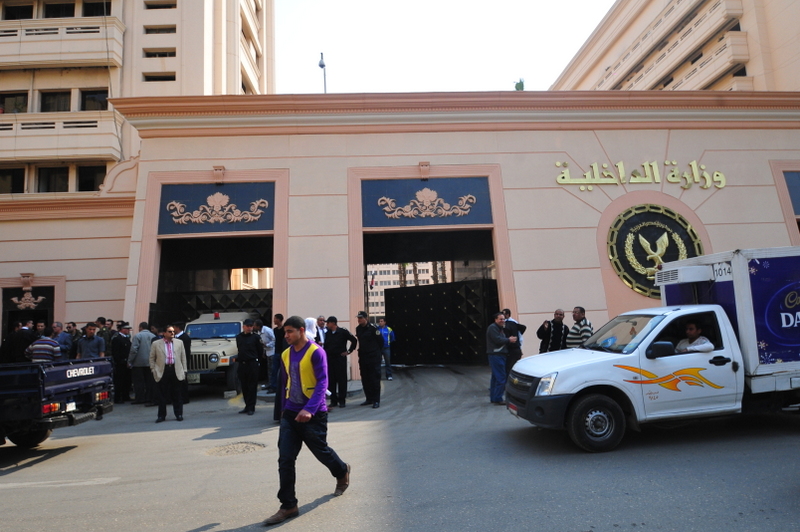The Interior Ministry has continued to deny torture inside prisons and detention centres, as well as enforced disappearances, despite several NGO reports confirming the occurrences and testimonies of all those who have been subject to the practice.
In a Wednesday statement, the ministry denied cases of enforced disappearance claimed by the National Council for Human Rights (NCHR). The NCHR said it has received complaints from families about the disappearance of 228 people, to which the ministry replied that it discovered that most of those mentioned have been imprisoned on charges.
Interior Ministry spokesperson Abu Bakr Abdel Karim denied on Tuesday evening in a televised phone interview the use of torture inside prisons, saying ”no torture exists inside prison cells, and the news published about this is just rumours”.
Abdel Karim added that the ministry is working on offering all the services needed for prisoners and is also working to train prisoners in certain skill sets.
Reports about police torture in detention centres and prisons have become more frequent in recent months, outraging activists, political parties, and social media users who have called for an end to police brutality.
Minister of Interior Magdy Abdel Ghaffar has previously commented on torture carried out by certain police officers as individual acts that do not represent the ministry as a whole.
Regarding enforced disappearances, the statement noted that the ministry is working on identifying the status of the rest of the cases and will send their locations to the NCHR so that families can be informed.
The NCHR was not available for comments on the Interior Ministry’s statement regarding the 228 cases of alleged enforced disappearance.
On 28 February, El Nadeem Centre for Rehabilitation of Victims of Violence reported that in February eight people died in detention due to torture, medical negligence, gas poisoning, and others reasons. In the same month, 88 cases of torture and 42 cases of police brutality were reported.
According to the Egyptian Commission for Rights and Freedoms, 28 people died in 2015 due to poor living standards and health conditions while in detention. The commission and other NGOs have reported that there were approximately 1,500 cases of enforced disappearance in 2015.
Families of those in detention have submitted complaints and organised protests in front of the Press Syndicate calling for improvements to prison conditions and proper medical treatment for those detained. Families have claimed that their relatives’ health have deteriorated while in detention due to the unclean and inhumane atmosphere.
Since the Rabaa Al-Adaweya sit-in dispersal in August 2013, during and after which many were reported missing and detained without formal charges, the number of enforced disappearances has increased. Families of those detained during the dispersal continue to petition for information regarding the whereabouts of their relatives.
Cases of enforced disappearance have branched out from occurring only during protests and demonstrations, as recent cases have described being arrested from the street, work, public spaces or home.


